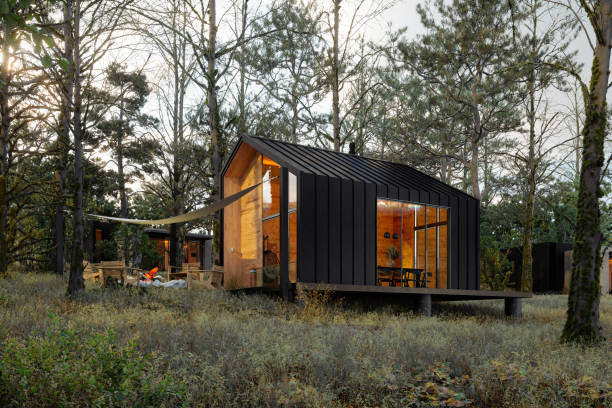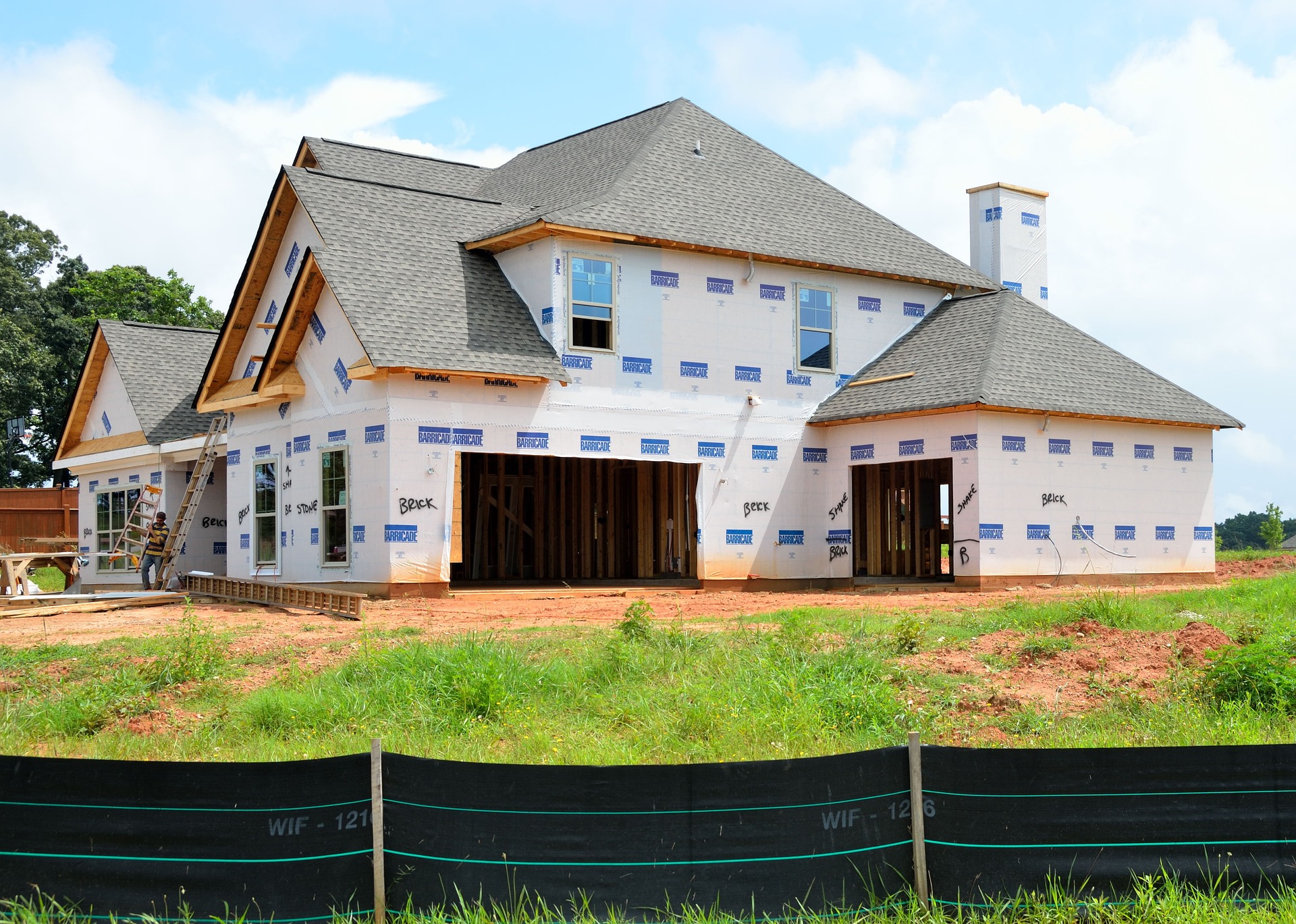Log Cabins: Cozy, Natural Spaces to Call Home
Log cabins offer a warm, inviting alternative to traditional homes, blending the charm of natural materials with practical living. Crafted from solid logs, they bring a sense of connection to nature indoors, creating spaces that feel both timeless and comfortable—whether as a full-time residence, a weekend retreat, or a backyard guest house.

What Are Log Cabin Kits and How Do They Work?
Log cabin kits provide all the essential materials needed to construct a cabin, delivered to your building site ready for assembly. These kits typically include pre-cut logs, windows, doors, roofing materials, and hardware. Unlike traditional construction methods, where materials are sourced separately and processed on-site, log cabin kits streamline the building process with components that are prepared in a controlled environment to ensure consistency and quality.
Most kits use a numbering or coding system that corresponds to detailed construction plans, allowing builders to follow a logical sequence during assembly. This approach significantly reduces construction time compared to traditional methods. While professional assistance is recommended for certain aspects like foundation work and utilities installation, many cabin kits are designed with the DIY builder in mind, featuring interlocking log systems and comprehensive instruction manuals.
What Types of Log Cabin Kits Are Available Today?
The market offers remarkable diversity when it comes to log cabin kits, catering to various preferences, budgets, and intended uses. Traditional full-scribe kits feature logs that are carefully notched to stack directly on top of one another, creating the classic log cabin aesthetic with visible round logs both inside and out. For those seeking modern efficiency, milled log kits offer uniform logs that are precision-cut to create tight-fitting, energy-efficient walls.
Modular log cabins represent the most contemporary option, combining factory-built sections that are transported to the site and assembled quickly—often within days rather than months. These cabins frequently incorporate modern design elements while maintaining the rustic appeal of traditional log structures. For smaller projects, many manufacturers offer compact cabin kits for hunting lodges, guest houses, or backyard retreats that can be assembled with minimal equipment and experience.
What Are the Benefits of Choosing a Log Cabin Kit?
Log cabin kits offer numerous advantages that make them increasingly popular among homeowners and vacation property buyers. Perhaps most significantly, they provide substantial cost savings compared to custom-built log homes, with predictable pricing that helps prevent budget overruns. The pre-cut, ready-to-assemble nature of these kits also dramatically reduces construction time, allowing many owners to complete their cabins within weeks rather than the months or years traditional construction might require.
From an environmental perspective, many log cabin kit manufacturers source their materials from sustainable forests and use efficient production methods that minimize waste. The natural thermal properties of solid wood walls provide excellent insulation, potentially reducing heating and cooling costs throughout the cabin’s lifetime. Additionally, log structures typically have smaller carbon footprints than conventional homes, as the production process requires less energy, and the logs themselves sequester carbon for the life of the building.
What Should You Consider Before Purchasing a Log Cabin Kit?
Before investing in a log cabin kit, carefully assess your property’s suitability for this type of construction. Factors like soil conditions, accessibility for delivery trucks, and local building codes can significantly impact both feasibility and cost. Many jurisdictions have specific requirements for log structures, including foundation specifications, insulation values, and fire resistance ratings that may affect your choice of kit and construction method.
Budget planning should extend beyond the initial kit purchase to include foundation work, interior finishing, utilities installation, and potential contractor costs if you’re not handling the entire build yourself. Time commitment represents another crucial consideration—while kits simplify construction, assembling a log cabin still requires considerable effort and basic carpentry skills. For those with limited building experience, selecting a kit with comprehensive support services, including technical assistance during assembly, can be invaluable.
What Maintenance Do Log Cabins Require Over Time?
Log cabins demand specific maintenance practices to preserve their beauty and structural integrity. Regular inspections are essential, particularly for checking signs of moisture intrusion, insect activity, and log movement. Most log homes require external treatment with specialized stains and sealants every 3-5 years to protect against UV damage and water infiltration. Interior logs typically need less frequent maintenance but should still receive appropriate treatments to prevent cracking and discoloration.
Proper site drainage represents one of the most critical yet often overlooked aspects of log cabin maintenance. Ensuring that water flows away from the foundation helps prevent moisture problems that could lead to rot or insect infestation. Modern log cabin kits often incorporate design elements like extended roof overhangs, covered porches, and raised foundations specifically to minimize moisture exposure and reduce long-term maintenance requirements.
What Are the Cost Considerations for Different Log Cabin Kit Options?
The price of log cabin kits varies widely based on design complexity, materials quality, and included components. Basic shell-only kits that provide exterior logs and minimal structural elements represent the most affordable option, typically ranging from $50-$80 per square foot. These kits require significant additional investment for interior finishing, plumbing, electrical work, and other essentials.
Comprehensive kits that include most materials needed for a complete cabin generally cost between $80-$150 per square foot, with modular log cabins often falling in the higher end of this range due to their factory-finished interiors. Premium kits featuring exotic wood species, custom architectural elements, or advanced energy-efficiency features can exceed $200 per square foot.
| Log Cabin Kit Type | Average Price Range (per sq ft) | Typical Size Range | Key Features |
|---|---|---|---|
| Basic Shell Kit | $50-$80 | 200-1,500 sq ft | Logs, fasteners, basic windows/doors, roof materials |
| Complete Kit | $80-$150 | 500-2,500 sq ft | Shell components plus interior materials, kitchen cabinets, bathroom fixtures |
| Modular Log Cabin | $150-$250 | 400-3,000 sq ft | Factory-built sections, fully finished interiors, quick assembly |
| Tiny Cabin Kit | $100-$200 | 100-400 sq ft | Complete materials for small footprint cabins, often portable |
| Premium Custom Kit | $200-$300+ | 1,000-5,000+ sq ft | Exotic woods, custom design, energy-efficiency packages, smart home features |
Prices, rates, or cost estimates mentioned in this article are based on the latest available information but may change over time. Independent research is advised before making financial decisions.
Beyond the kit itself, site preparation, foundation work, and utility installations represent significant expenses, often adding 20-50% to the total project cost. For those seeking affordable options, smaller “cheap log cabins” or cabin kits for sale with simplified designs can provide an entry point to log home ownership, though careful research is essential to ensure quality isn’t compromised.
Log cabins continue to capture the imagination of those seeking a connection to simpler times while providing practical, sustainable living spaces. With today’s diverse range of kit options—from basic DIY shells to sophisticated modular systems—the dream of owning a log cabin has become more accessible than ever, offering cozy, natural spaces that truly feel like home.




